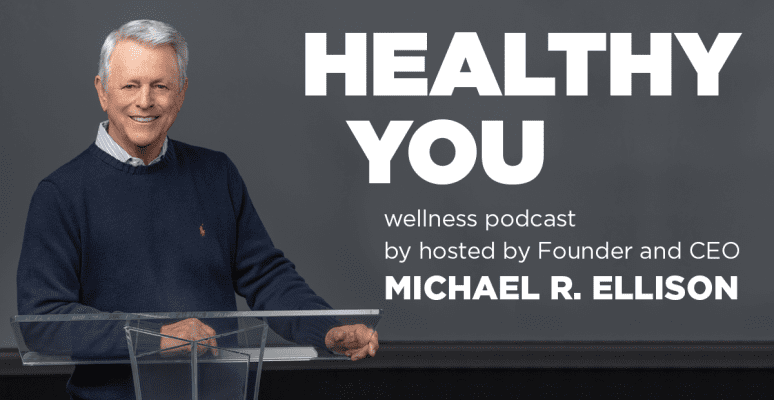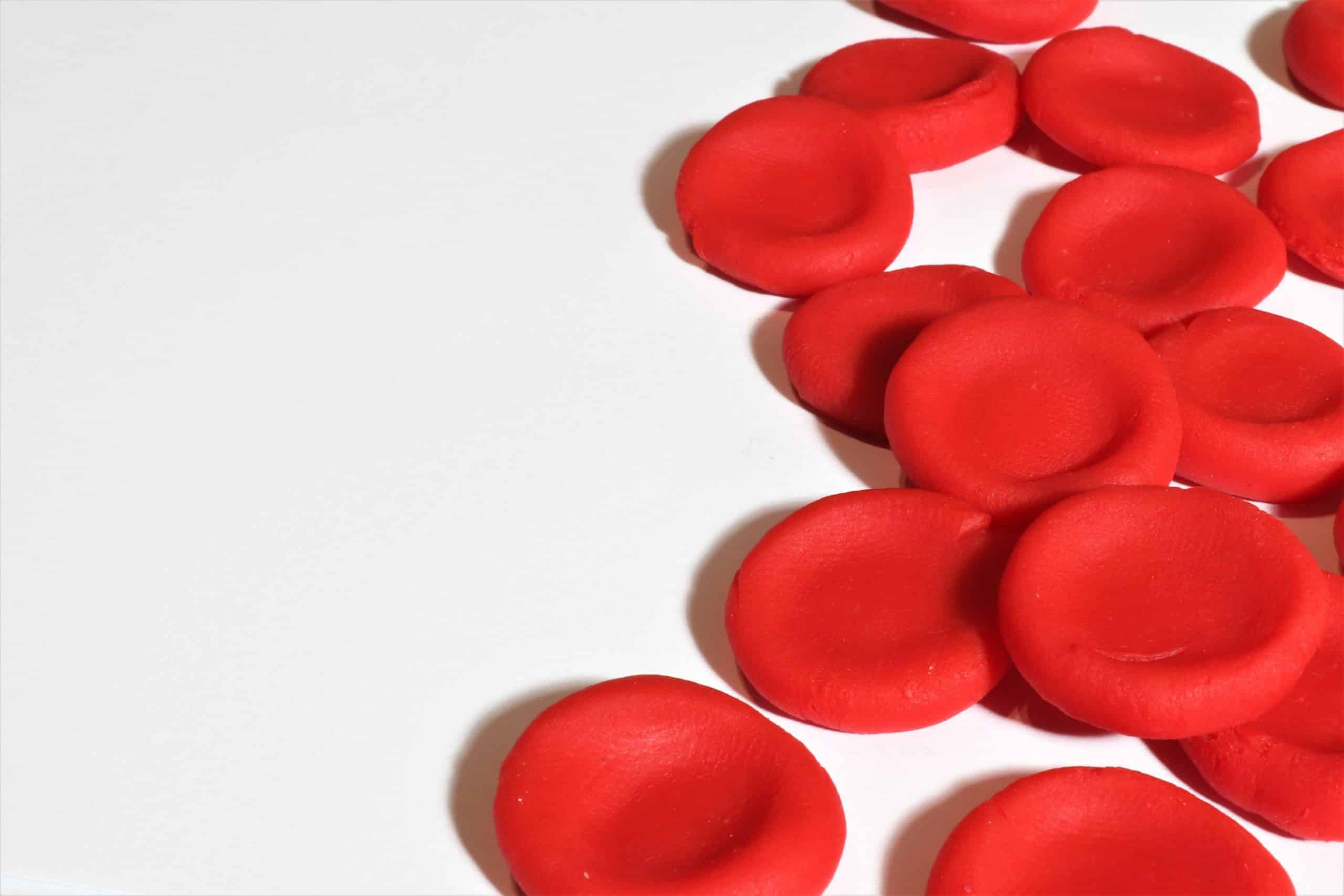Your cart is currently empty!
Blog
-

Treat Allergies and Asthma Safely and Naturally
Over-the-counter and prescription medications may provide temporary relief from allergy symptoms but are not deeply effective or provide a lasting solution. Immunotherapy boosts the body’s natural defenses using safe and natural low-dose serum to restore the body’s innate immune function.

What Causes Allergies?
Allergies occur when a plant or animal protein or synthetic substance comes in contact with a mucous membrane. Your immune system responds by trying to eliminate the irritant by creating an antibody which is designed to weigh down and fight antigens. When a person is repeatedly exposed to histamine-rich substances, such as highly processed foods, milk, wheat, soy, nuts and shellfish, the immune system can become overwhelmed leading to symptoms such as seasonal and chronic allergies, skin problems, swelling, gastrointestinal issues and asthma.
Identify and Treat Allergies Naturally
A simple skin prick test diagnoses allergies using food and airborne antigens. During the test, allergens are placed on the forearm or back and gently scratched into the uppermost layer of the skin. Positive allergens cause an immune IgE (immunoglobulin E) response. Test results typically appear within 30 minutes.
Once allergens are identified, your healthcare provider will review the results and any necessary treatment plan(s) with you, which may include immunotherapy. Immunotherapy is a cost-effective and convenient treatment that often leads to lasting relief of allergy symptoms even after treatment has stopped. Low-dose prescriptive serums are made with allergens that are taken daily to improve immunity to the positive antigens. Immunotherapy has been clinically shown to improve:
Allergies Rhinitis - Asthma
- Recurrent Colds
- IBS
- Gastritis
- Colitis
- GERD
- Acid Reflux
- Conjunctivitis
- Nasal Polyps
- Chronic Cough
- Autoimmune Conditions
- Skin Rashes
- Dermatitis
- Angioedema
- Chronic Fatigue
- Migraines
- Headaches
- Joint and Muscle Aches
At TriVita Clinic of Integrative Medicine, we offer food and environmental sensitivity testing for 100 different substances. In addition to food and airborne sensitivity testing, we also provide additional laboratory testing to determine if there are other underlying causes of an autoimmune condition. Treatment options vary based on the individual with many natural options designed to improve the immune system and significantly reduce or stop allergies and other autoimmune conditions.
Schedule an appointment with one of our medical providers today to discuss your options by calling 480-337-4148. To learn more, visit TriVitaClinic.comAbout Paul Bernitt
Paul is a passionate advocate for early detection, prevention and wellness and brings extensive healthcare education, experience and leadership to his role as the Director of TriVita Clinic of Integrative Medicine.
-

Free Yourself from the Stress Cycle
Your mental health affects every aspect of your life, from your relationships, productivity, and self-esteem. But there’s a strong link between your mood, mental health, and your physical health, as well. There are many ways to keep your body, mind, and mood in optimal condition. Learning to manage stress effectively makes for productive days and a healthier mind.
How Stress Affects Your Brain
During times of stress, it’s not uncommon to feel forgetful or disorganized. When you’re under a lot of duress, your brain can begin to change how it processes information, which can affect your memory and other cognitive functions.
Your brain is made up of different parts that each performs various tasks. Research suggests that when one part of the brain is engaged, other parts may not have as much energy to perform their tasks as effectively as usual. This may explain why some experience forgetfulness or lapses in memory during extreme stress or trauma.
Chronic stress and anxiety can be extremely harmful to brain health. Persistently elevated levels of cortisol, a stress hormone, can physically change parts of your brain. These long-term changes can result in problems executing certain cognitive functions such as learning and recalling information, short term memory, word finding, and attention and focus.
How Stress Affects Your Mood
Not only does stress negatively alter your brain’s circuitry, but it can also lead to certain mood disturbances such as depression, anxiety, and mood swings. When you experience acute stress, your body releases hormones—including cortisol and norepinephrine—which impairs the function of the prefrontal cortex (home of higher-level thinking). When this happens, your reactive tendencies are heightened, and reflective tendencies are muted.
When you are stressed, you may experience emotional changes. These can include feeling anxious, fearful, angry, sad, or frustrated. If persistent, these feelings can manifest in physical symptoms that perpetuate the cycle. Along with the changes to mood, changes in behavior are also very common. Feeling withdrawn, indecisive, or aggressive can accompany chronic stress.
Improve Your Mood and
Mind There are three major types of stress: routine, sudden, and traumatic. Routine stress is related to the pressures of daily life. For example, meeting deadlines at work, caring for family members, and other daily responsibilities. Sudden stress is brought on by an unexpected negative change such as an illness, divorce or loss of employment. Finally, traumatic stress is experienced
in significant events like a major accident, or natural disaster.The effects of stress can build up over time, which can, in turn, cause more stress. So, taking practical steps to manage your stress is an important first step. Here are a few ways to help reduce stress and improve your mental and physical health:
- Learn to recognize when you’re feeling stressed. Notice changes in thoughts or feelings, muscle tension, difficulty sleeping, etc. These are all signs that you may feel overwhelmed and need to take action.
- Exercise regularly. Routine physical activity—as little as 30 minutes a day—can help regulate stress hormones, boost energy, and improve your mood.
- Be mindful. Mindfulness in the form of meditation, prayer, deep breathing, or journaling can be practiced anywhere and are useful in managing stress.
- Don’t be afraid to get help. During times of stress, it can be helpful to talk it through with a close family member or friend. If you experience feelings of anxiety, depression or feel you can’t cope with stress talk to your doctor right away.
Everyone experiences stress. It’s a natural fact of life; however, learning to deal with stress healthily can make a dramatic difference in your mental and physical well-being.
-

Episode 06: Featuring Dr. Ricardo Lerma
Dr. Ricardo Lerma discusses how to age with health, address inflammation through lifestyle, and the importance of whole person wellness.
Health isn’t just the absence of disease; it’s about living with physical, mental, and social well-being. On this episode of Healthy You, Dr. Lerma breaks down how he treats his patients and applies a whole person approach
to his practice.About Dr. Ricardo Lerma

Dr. Ricardo Lerma graduated Cum Laude with a Bachelors in Human Biology and a Doctorate in Chiropractic from Cleveland Chiropractic College in 2002. He now provides chiropractic and other therapeutic services at his clinic, Summit Chiropractic Health Center. His practice focuses on whole person wellness using drug-free, non-surgical approaches to injury prevention, health, and healing.
Summit Chiropractic Health Center

Summit Chiropractic Health Center is located in Cave Creek, Arizona and is committed to helping patients achieve optimal health and well-being through chiropractic care. Dr. Lerma combines state of the art diagnostic equipment with hands-on techniques to provide a full range of chiropractic and therapeutic health services. Learn more about Dr. Lerma and Summit Chiropractic Health Center at www.SummitChiroHealth.com
-

Building a Brighter Future For Those in Need
The Beginning
In 1984 Peter Pretorius’ life changed forever when he visited a food distribution center in Pambarra, Mozambique. He was taken to the small village to observe the conditions and issues facing the government. Peter intended on staying for just one day, but when it was time to leave there was no airplane waiting for him.

Peter Pretorius
2/22/1945 – 8/9/2018On that first day, Peter saw 18 people die from starvation. He’d never seen so many people living in those conditions, and it struck him to the very core. Peter spent the next ten days in the village learning about the people around him and their struggles. One day an old man stumbled across the clearing. Peter sat him down under a tree and told him to wait while he went to get water. By the time Peter returned to the man, he was dead. It was then that something within Peter snapped. He shouted at God and felt something in his heart and knew what he needed to do.
When Peter returned home, his wife Ann immediately noticed that something had changed within him. He assured her that nothing was wrong with him, but something significant had changed. Peter explained that he needed to commit his life to help improve the lives of others. That’s when Joint Aid Management (JAM) was born.
The Success of School Feeding Programs
Malnutrition is still a substantial problem in many countries. Nearly half of all deaths in children under the age of five are attributed to under-nutrition. That comes to a devastating loss of approximately 3 million young lives each year. Those who are malnourished, especially young children, experience delayed recovery and are at increased risk of dying from common infections; but has broader implications as well. Hunger and the effects of malnutrition create a major barrier to breaking the cycle of poverty through gaining access to education in Africa.
JAM implemented nutritional school feeding programs to help address this issue. To help keep children in the classroom while supporting their nutritional needs, JAM feeds the children a highly nutritious soup at school locations. Once each child is fed, they have the energy to engage with their education and community. But the school feeding program goes farther, by providing a safe harbor for children to learn and grow. In addition, they provide additional resources to the community to ensure that young girls can remain in class and receive the same quality education as the boys.
In 2015, Michael and Susan Ellison joined JAM in Mozambique to observe the profound impact the school feeding program was having. As the children were waiting to be fed, Michael and Susan noticed how lethargic and weak they looked. It broke their hearts to see young boys and girls living this way.
After the children received their meals and began to show signs of improved energy, Susan gave a soccer ball as a gift. They were astounded by the difference in their behaviors. Such a simple item, one that many people in developed countries take for granted, had the power to change so many young lives. It was in that moment that the seeds of House of Giving’s Peter Pretorius Field of Dreams initiative were planted.
Peter Pretorius Field of Dreams

Early stages of the Peter Pretorius Field of Dreams To grow into healthy and happy adolescents and adults, children require the right foods, plenty of activity, education, strong community and spiritual guidance. JAM and House of Giving are working together to provide every student these essentials.
The current project in Mozambique began with a single soccer ball, but quickly grew into providing full soccer kits that included jerseys, gloves, shorts and soccer balls to 1,020 children in 34 different schools, orphanages and hospitals. Now House of Giving is raising funds to help build a beautiful, first of its kind irrigated soccer field where children will be able to play and compete in soccer tournaments but will also be mentored by renowned coaches and soccer celebrities. These coaches will provide leadership to each child, teach the value of teamwork, build self-confidence and help support healthy physical and mental development.
Schools from all over will recruit players and create numerous teams and leagues to play on the fields which will serve as the regional sports and event center. But the Peter Pretorius Field of Dreams isn’t just a state-of-the-art soccer facility; it will sit alongside the Centre of Excellence, which will provide education and training for the surrounding communities. This complex is situated next to JAM’s largest semi-commercial farm which produces crops and provides technical training to local farmers and community outreach programs. New programs offered will focus on farming methods, business development and other useful resources to teach students about the farming industry, which is so vital to their survival and future development.
Project Status and Future Plans
To date, House of Giving has made significant headway on the Peter Pretorius Field of Dreams project. Below are a few accomplishments and the next phases for the project.
Peter Pretorius Field of Dreams Accomplishments:
- Clearing and grading of the ground
- Removal of soft sand and soil analysis
- Installation of an irrigation system
- Laying of base soil and fertilizer
- Offsite grass runner germination
- Successfully harvest of grass runners at the final field site
- Purchase of maintenance tools and appliances
Next Steps for Peter Pretorius Field of Dreams:
- Install grandstand and additional seating
- Construction of field fences
- Drill boreholes and installation of water stands and taps
- Installation of restrooms and changing rooms
- Hire and train a groundskeeper
- Purchase sports kits for players and referees
House of Giving has also partnered with Freekicks, a non-profit organization that uses soccer as a vehicle to inspire young people throughout the world to dream. Soccer has so many benefits for children; it builds community, promotes teamwork and ignites children’s passion and determination. Freekicks train coaches to teach children soccer skills while ministering Biblical principle and teaching life skills.
How You Can Help
What if you could give the gift of hope, faith, joy, security, community and the promise of a brighter future? Your contribution to the House of Giving’s Peter Pretorius Field of Dreams initiative gives that, and more, to thousands of children and their families.
To date, the Peter Pretorius Field of Dreams project has been fully funded by House of Giving donations from caring individuals like you. Every contribution is greatly appreciated and helps move
House of Giving closer to its goal of creating a safe place for children to learn and grow. Visit HouseofGiving.org to donate to the Peter Pretorius Field of Dreams initiative.Another way to give…
Do you shop on Amazon? Donate .5% of the price of your eligible AmazonSmile purchase to House of Giving when you shop. Purchases must be made through smile.amazon.com. No credit will be given for purchases through Amazon. Don’t forget to save smile.amazon.com to your favorites.
-

Brain Aging—What’s Normal and What’s Not
With age, some amount of memory loss is considered normal. A lost wallet or forgetting where the car is parked isn’t an immediate cause for concern. As people get older, changes occur in the body (including the brain), which can result in occasional forgetfulness. Some people may also notice it takes longer to learn new things or have difficulty recalling information as quickly as they used to. This can begin as early as the 20s and 30s for some people.
What’s Normal
For most people, occasional lapses in memory are moderate and are not disabling. The following examples are typical for older adults:
- Sometimes forgetting what word to use
- Losing things occasionally
- Forgetting an appointment or bill from time to time
- Becoming easily distracted
- Not entirely being able to remember information that’s “on the tip of your tongue”
What’s Not Normal
The main difference between age-associated memory loss and more severe forms, such as mild cognitive impairment or dementia, is how it affects your daily life. Age-related lapses in memory or thinking have little impact on your performance and ability to enjoy life. On the other hand, mild cognitive impairment and dementias are persistent, debilitating and are marked by a decline in two or more intellectual abilities like memory, language, abstract thinking, and judgment.
Below are examples of potential signs and symptoms:
- Trouble holding a conversation
- Difficulty recalling details of recent conversation or events
- Frequently forgetting dates or events
- Difficulty recognizing or remembering the names of family members and close friends
- Trouble making decision or poor judgment
- Unable to follow directors or feeling lost and disoriented in familiar places
- Difficulty performing simple tasks (paying bills, dressing appropriately or household chores)
When to Get Help
It’s time to see your doctor when memory lapses or difficulty thinking becomes frequent and noticeable. If family members, friends or co-workers have expressed concern, it’s important to speak with your physician as soon as possible for an assessment.
Keep in mind that memory loss can be exacerbated by certain medical conditions, such as head injury, nutritional deficiencies, stress, and depression, or can be a side effect of medications. If you experience memory loss or other issues thinking, it’s important to speak with your doctor to determine what’s causing them.
Check out Alfred Libby’s original, patented formula for brain health. They’re only available from TriVita.

Daily, consistent use of [TVBLOGCOPY]Alfred Libby’s Slow Dissolve B-12[/TVBLOGCOPY][MWSBLOGCOPY]Alfred Libby’s Slow Dissolve B-12[/MWSBLOGCOPY] delivers 100% of the recommended daily requirements for B12, B6 and B9 vitamins.
Also, check out other TriVita supplements for brain health like [TVBLOGCOPY]NeuroShine[/TVBLOGCOPY][MWSBLOGCOPY]NeuroShine[/MWSBLOGCOPY] (U.S. only) and [TVBLOGCOPY]Omega3 Prime[/TVBLOGCOPY][MWSBLOGCOPY]Omega3 Prime[/MWSBLOGCOPY].
[TVBLOGCOPY]If you have any questions, feel free to call us at 1-800-991-7166 in the U.S. or 1-800-344-8797 in Canada.[/TVBLOGCOPY]Reference: https://www.nia.nih.gov/health/memory-and-thinking-whats-normal-and-whats-not
-

Why Is Brain Health So Important to Your Well-being?
The importance of heart health is widely acknowledged and promoted. Everyone knows it’s essential to maintain healthy body weight. So why is it that too few people actively pursue better cognitive health? Brain health is critical to maintaining a healthy and independent life.
Throughout your life, your brain changes and adapts to the many different things you experience and learn. When your brain is healthy, broken connections can be repaired and new ones created. But with age and poor lifestyle, the brain’s natural capabilities can begin to decrease. Many aging adults fear this decline in cognitive function, but it isn’t inevitable.
What are
cognitive skills and abilities?Cognition has to do with how a person perceives, understands, and performs in the world around them. It’s the set of mental abilities and processes that are performed in nearly every action while awake. These include thinking, knowing, remembering, judging and problem-solving. These are higher-level functions of the brain and encompass language, imagination, perception, and planning.
Cognitive skills are brain-based functions needed to carry out any task—from the simplest to the most complex. Your cognitive functioning has less to do with intellectual knowledge and more to do with how you learn, remember, and problem solve.
For example, answering the door involves perception (hearing the doorbell), decision making (deciding whether or not to open the door), motor skills (turning the handle and opening the door), language skills (speaking and understanding language), and social skills (interpreting tone of voice and interacting with another person appropriately).
What happens when cognitive skills decline?
Like most ailments, cognitive disorders are caused by a variety of factors. These can include genetic predispositions, certain medical conditions, lifestyle, and environmental factors. Neurophysiological changes an also result from over-consumption of certain substances like drugs or alcohol, or as the result of physical trauma or injury. A combination of these factors can result in varying degrees of cognitive dysfunction.
Symptoms of cognitive dysfunction can vary widely, but many common signs include:
- Confusion
- Poor motor coordination
- Loss of short-term or long-term memory
- Impaired judgment
- Identity confusion
With age, some brain functions tend to decline. This is usually seen with executive functions—abilities that enable goal-oriented behavior like planning. However, cognitive skills aren’t fixed—they can be improved and strengthened through lifestyle and training.
-

Episode 05: Featuring Daniel Gartenberg PHD
Dr. Daniel Gartenberg provides insight on how you can improve your quantity and quality of sleep, as well as why a good night’s sleep so important to your overall well-being.
There’s nothing quite like a good night’s sleep. Yet, many of us struggle to sleep well and wake up feeling rested. Daniel Gartenberg, Ph.D. wants to help change that. On this episode of Healthy You, Daniel explains why sleep is so essential to our vitality, longevity, productivity, and general health. Plus, he provides scientifically-backed tips for enhancing your sleep.
About Daniel Gartenberg, Ph.D.:

Dr. Daniel Gartenberg received his Ph.D. in cognitive psychology with expertise in sleep, A.I., and preventative health. He is an Adjunct Assistant Professor at Penn State University as well as Co-founder and CEO of Sonic Sleep, which is making sleep more regenerative through science of sound, light, temperature, and relaxation. Dr. Gartenberg has also received grant funding from the National Science Foundation and National Institutes of Health.
Sonic Sleep

Sonic Sleep is changing how people sleep through innovative technology, custom sleep tools, and holistic coaching. To learn more about Dr. Gartenberg, take the free sleep assessment, or sign up for personalized sleep coaching visit www.sonicsleepcoach.com.
-

What Does God Say About You?
In a world of labels, brands, logos, denominations, medical diagnosis with labels such as diabetic, obese, cancer patient, cancer survivor, heart patient, and many other cultural label issues, it is very easy to lose sight or be distracted from the number one question, “who does God say I am?
Why I think answering this question is so important is the expected or anticipated blessings, rights, privileges, values and personality expressions that come with who I am. When answering the question of who am I, we can be glad we are not defined by what others say who I am… but who God says I am.
I remember a very successful pastor that lived with a tormenting thought from being told frequently as a child by his father that he would grow up to be a nobody. And even with all the success of pastoring a megachurch with thousands of attendees, he wrestled with the words, “you are and will be a nobody.” He never fully found the comfort and joy of who God said he was.
Many have accepted labels that attempt to define them and act out the acceptance of that label with the expected behavior. That is what man does. Has always done. You’re short, tall, fat, skinny, smart, dumb, you’re beautiful, etc. That is why branding is so powerful in commerce today. We identify with the voice and look of the brand. It is also why medical diagnosis is so powerful in that it gives evidence for empowerment to behaviors by both the patient and the practitioner. (Hang with me here as I know I am entering an area where it is easy to be misunderstood but also if understood, it will set you free to expect God-given blessings of wellness with vitality and purpose for your life!)
To really understand this question of who does God say I am and be free to live and behave accordingly, there is only one reference point for me to go as a historical testament and that is the scriptures. In 1 Thessalonians 5:23 it says,
“Now may the God of peace Himself sanctify you completely and may your whole spirit, soul, and body!”
I stop there to illuminate the point of how God sees us. God sees each of us as a human being with spirit, soul, and body! It is why at TriVita we talk about physical, emotional and spiritual wellness!
When we see ourselves as God sees us (as body, soul and spirit beings), we can better understand what God says about us. As it is such a contrast to a world that is two dimensional in almost every way. Rarely in the medical world of evidence-based medicine will there be an attempt to diagnosis your spiritual life. Yet there is evidence that spiritual life plays a significant role in both the physical and mental/emotional (soul) health. So what God says about you is important to your wellness. We are whole people, and as we renew our minds to the creation we are of God, and what he says about us, our choices in life and outcomes take on greater wellness and purpose. If you only see yourself with whatever circumstance or condition that is prevalent in your life, you will act out that behavior and will miss the awesome potential of who God says you are and act accordingly to receive the rights, privileges, and freedoms as an heir of God.
If you were to take your daily routines in life that dictate your behavior, what would be the most prominent influencer? What God says about you, what you say (self-talk), or others say about you. It is obvious that without a guide for our minds, it will be what we hear from our inner voice and the voices of others.
Yet the scriptures say in Romans 12:2,
“And do not be conformed to this world but be ye transformed by the renewing of your mind, that you may prove what is that good, and acceptable and perfect will of God.”
I would encourage you to simply accept as a starting point, what the will of God towards you is defined by what the Words of God in scripture say about you.
In Genesis1:27-28,
“So God created man in His own image, in the image of God he created him; male and female He created them. Then God blessed them, and God said to them, be fruitful and multiply!”
This is a spoken word of how God feels about His human creation! Words of blessing!
In Psalms 139:14 it says,
“I will praise You, for I am fearfully and wonderfully made! Marvelous are your works.” Verse 17, “How precious also are Your thoughts to me O God.”
Psalms 8:4,
“What is man that You are mindful of him?” Verse 5-6, “For you have made him a little lower than the angels, and you crowned him with glory and honor. You have made him to have dominion over the works of Your hands!”
It is even more clearly defined and illuminated in I Cor. 6:19,
“Do you not know your body is the temple of the holy spirit who is in you, whom you have from God, and you are not your own? For you were bought with a price; therefore, glorify God in your body and in your spirit which
are God’s.”God’s desire towards us in blessing and living in and through us is amazing. The only thing that separates us from the greater manifestation of His will towards us are the voices that have the greatest influence on how we think of ourselves and act out day to day.
I would encourage you to daily pray this prayer as your voice of influence to bring greater wellness, glory, and blessings into your life. “Today I choose to believe I am who God says I am… I am chosen to be YOUR temple on earth, to glorify YOU in my body. I am empowered by YOUR spirit that lives in me. I am filled with YOUR love that flows freely from me. I am blessed with all spiritual blessings. I am and will be, who YOU say I am!”
-

Why Self-Talk Matters
Sometimes a message is so profound few words are necessary. This March blog post is one of those messages.
I recently came across Shad Helmstetter, Ph.D. and his updated book What to Say When You Talk to Your Self. What a simple but insightful reading with the backing of neuroscience to support his message. We all do it…we talk to ourselves. Right?
The new science relates the brain to a computer. Self-talk and thoughts are the keyboards entering our words and the brain stores what you say or allow others to say about you. About this Shad writes, “It is no longer a success theory, it is a simple but powerful fact. Neither luck nor desire has the slightest thing to do with it. It makes no difference in whether we believe it or not. The brain simply believes what you tell it most. And what you tell it most about you, it will create. It has no choice.” I have not been around too many people who are in love with themselves according to how they talk to themselves—and you know what I am talking about.
If the brain registers what we tell it most as the dominant influence in our lives, I would like to offer some thoughts from another favorite book, the Bible, that says, “Whatsoever a person thinks, so they become.”
To keep this simple and profound, here are other the wonderful words from the scripture to repeat over and over to program your brain to bring about positive things in your life. “Friend, I pray you may prosper in all things and be in health just as your soul prospers.” 3 John 2. That is what God desires for you! Say it and think it continually.
I can’t think of a more powerful statement to reflect on and program into your brain. Even if the circumstances of your life do not represent that today, your brain will receive, believe, and will seek to manifest into your life.
TriVita Members, be watching for the VitaJournal in March. It is loaded with positive and meaningful messages from authors like Gil Mertz on forgiveness and Andi Baxter on the breakthrough in how physical exercise supports your health. March is your month to spring forward in wellness!
-

Stroke Warning Signs You Can’t Ignore
Recognizing the signs of stroke and promptly receiving treatment will significantly reduce the damage caused and improve chances of survival.
According to the Centers for Disease Control and Prevention (CDC) and Health Link BC, stroke is the leading cause of severe long-term disability in the United States and Canada. More than half of stroke survivors age 65 and older experience reduced mobility. But strokes can occur at any age. In 2009, 34 percent of people hospitalized for stroke were under 65 years of age.
Six Signs of a Stroke
Timely treatment can reduce the risk of disability and death from stroke. It’s important to know the signs and symptoms so you can act quickly. Here are the top six signs and symptoms to look for:
1. Dizziness, sudden trouble walking, loss of coordination or balance
2. Sudden weakness or numbness on one side of the body, including the face
3. Sudden severe headache with no known cause
4. Difficulty speaking or understanding others
5. Sudden loss of vision in one or both eyes
6. Sudden disorientation, memory loss or confusion

What Causes Strokes
A stroke, also known as cerebrovascular accident or brain attack, occurs when the blood supply to the brain is cut off depriving it of oxygen or when a blood vessel in the brain ruptures. Regardless of the cause, tissue in the brain is damaged or dies. Strokes can lead to long-term disability, permanent brain damage or death.
There are two types of stroke:
Ischemic stroke occurs when the blood supply to part of the brain is blocked by blood clots or as a result of atherosclerosis, a build-up of fats, cholesterol and other particles in and on artery walls. Inflammation, infections and certain medications can also contribute to ischemic strokes. These are the most common type, accounting for approximately 80 percent of all strokes
. Hemorrhagic stroke occurs when a blood vessel in the brain bursts thus preventing normal blood flow and resulting in bleeding within the brain. Hypertension can contribute to this type of stroke due to the increased pressure on arterial walls. Hemorrhagic strokes comprise the remaining 20 percent of stroke cases.
Lifestyle Changes You Can Make Today
The most important risk factors for stroke are preventable and treatable. You can control the top preventable risk factors by working with your healthcare provider to make the following lifestyle changes:
- Control high blood pressure (hypertension) through lifestyle modification or medication when necessary,
- If you smoke – quit! This can add years to your life and reduce your risk of developing many preventable diseases,
- Manage diabetes through lifestyle choices such as eating a healthy diet, exercising regularly and limiting alcohol consumption,
- Control your cholesterol,
- Get adequate physical activity throughout the day,
- Maintain a healthy weight
-

Episode 04: Featuring Dr. Michael Arloski
Dr. Michael Arloski shares his experience as one of the key developers of the wellness coaching field and sheds light on what’s possible with coaching.
Have you ever tried wellness coaching or considered becoming a wellness coach? Dr. Michael Arloski wants you to know lasting change is possible! In this episode, Dr. Arloski breaks down what to expect while working with a wellness coach, how coaching can assist you to live better, and what it takes to be a successful coach.
About Michael Arloski, Ph.D., PCC, CWP:

Dr. Arloski is a licensed psychologist, professional certified coach, a certified wellness practitioner, CEO of Real Balance Global Wellness and dean of The Wellness Coach Training Institute. He became interested in wellness and what is now called positive psychology early on in his academic career. And was fortunate enough to attend the world’s first Wellness Conference at The National Wellness Institute in 1978. Since then, he’s committed his life to studying health and wellness and helping other achieve it in their lives.
Wellness Coaching for Lasting Lifestyle Change

Dr. Arloski wrote Wellness Coaching for Lasting Lifestyle Change, which has been used to train well over 8,000 health and wellness coaches all over the world. This is an easy-to-use training tool that has become the field’s foundational guide for wellness professionals of all kinds. He recently released the 2nd edition which includes numerous updates, additions and expanded worksheets.
-

Six Ways to Love Your Heart
The health of your heart is something everyone should be concerned with. Heart disease is the leading cause of death among men and women in the United States. Fortunately, you have the power to control many of the top risk factors associated with cardiovascular disease. Here are six simple ways you can show this workhorse organ a little extra love and minimize your risk of heart disease, heart attack and stroke.
1. Butt Out
If you smoke or use other tobacco products, it’s time to kick the habit to the curb. Smoking cigarettes is linked to a number of chronic diseases and potentially fatal problems like cancer, heart disease
and lung disease.2. Take it Easy
Chronic stress can contribute to high blood pressure and other cardiovascular events such as heart attack. Learn to manage your stress and cope with emotions such as anger or anxiety in positive ways. Stress-reducing activities could include participating in regular physical activity, meditation or prayer, speaking with a qualified mental health provider or connecting with others through community or religious support systems.
3. Hit Snooze
Getting the right amount of sleep each night is critical to feeling your best and protecting your health. Studies show that on average people are getting only 6.5 hours of sleep each night. Furthermore, research is revealing links between sleep deprivation and hypertension, coronary heart disease and diabetes.

4. Take a Stand
Studies suggest that sitting for too long is bad for you no matter how much exercise you do. Sitting for too long can increase your risk of developing blood clots among other adverse effects like poor posture, pain, and lower energy. If you have a sedentary job or sit for long periods, set an alarm or reminder to stand and move around at least once every hour.
5. Go Nuts
Instead of reaching for crackers or chips, grab a handful of nuts. Walnuts, peanuts and almonds are good for your heart and will satisfy your craving for a crunchy snack.
6. Give Thanks
A positive attitude and daily gratitude are good for your soul as well as your heart. Expressing gratitude daily can ward off stress, anxiety and high levels of inflammation which in turn may lower your risk of developing cardiovascular disease.
-

Cholesterol Basics + Five Foods to Improve Your Numbers
Cholesterol can be confusing. What’s good? What’s bad? How can I improve my numbers? These might be questions you’ve asked yourself. Caring about your cholesterol and the general health of your heart is an important first step.
Cholesterol is a waxy, fat-like substance that is found within every cell of your body. Cholesterol can come from two sources; your liver – which makes all the cholesterol you need – and from foods derived from animals. As the amount of cholesterol circulating your blood increases, so can your risks of heart disease. For this reason, it’s important to make annual physicals with your physician a priority.
Cholesterol Basics
There are three types of fatty substances (lipids) in the blood: low-density lipoprotein (LDL), high-density lipoprotein (HDL) and triglycerides.
Low-density lipoprotein (LDL) cholesterol — LDL cholesterol sticks to the walls of your arteries which contribute to the formation of plaque. Plaque is a hard, thick deposit that can clog arteries and make them less flexible. LDL is considered “bad” cholesterol, and lower levels are better for your heart.
High-density lipoprotein (HDL) cholesterol — HDL is known as “good” cholesterol because it helps remove LDL from your arteries and moves it to the liver for removal. Higher levels of HDL are considered good for your heart while low levels have been shown to increase the risk of heart disease
. Triglycerides — Triglycerides are the most common type of fat in the body and store excess energy from your diet. High triglycerides combined with high LDL (“bad” cholesterol) and low HDL (“good” cholesterol) can increase the risk of atherosclerosis (hardening and narrowing of arteries), heart disease and stroke.
Controlling Your Risk Factors
Cholesterol is one of the major controllable factors for heart disease, heart attack, and stroke. According to the CDC, nearly half of Americans have at least one of the three key risk factors for heart disease: high blood pressure, high cholesterol, and smoking. Other risk factors for heart disease, heart attack, and stroke include diabetes, unhealthy diet, sedentary lifestyle, obesity, alcohol consumption, and family history.
You can control these factors through your lifestyle choices. Even simple changes to your day-to-day routines can have a profound impact on your heart health.

Five Foods to Improve Your Heart Health
1. Wild-Caught Fatty Fish
Fatty fish have high levels of [TVBLOGCOPY]omega-3[/TVBLOGCOPY][MWSBLOGCOPY]omega-3[/MWSBLOGCOPY] fatty acids, which can help support heart health. The American Heart Association suggests that you aim for two serving of oily fish per week. Good options include salmon, tuna, trout, mackerel, and sardines.
2. Nuts
Walnuts, almonds and other nuts can help improve cholesterol and lower your risk of developing other chronic diseases. Nuts tend to be high in calories, so a handful a day of raw or unsalted nuts is enough.
3. Soluble Fiber
Oatmeal, whole grains, fruits, and vegetables contain soluble fiber which can lessen the absorption of cholesterol into your bloodstream and reduce LDL cholesterol. Soluble fiber is also found in kidney beans, Brussels sprout, and fruits such as apples and pears.
4. Olive Oil
Substituting unhealthy oils such as canola or corn oil with olive oil can have heart-healthy benefits. Olive oil contains monounsaturated fatty acids (MUFAs) which are considered a healthy dietary fat. Olive oil is also loaded with beneficial antioxidants.
5. Avocados
Avocados are also a good source of healthy fats, antioxidants, Vitamins C, E, K and B vitamins like B5, B6 and folic acid. Avocados also offer minerals, cholesterol- reducing phytosterols and dietary fiber.
-

The Heart of the Matter
Some interesting facts about our Circulatory System
The human body’s circulatory system consists of three independent systems that work together—these include the heart (cardiovascular), arteries, veins, coronary and portal vessels (systemic) and lungs (pulmonary). The circulatory system uses its massive network of veins and arteries to transport blood, oxygen and other nutrients to and from the cells in our body.
Make a fist
Want to estimate the size of your heart? Adults, clench your two fists together for an idea of the size; as for weight, this relentless pumping machine (it pumps 4,000 gallons of blood each day), weighs in at around 11 ounces.

Eye feel left out
Your heart provides nourishing blood to nearly all tissues in the body—except the corneas. Because transparency is required to properly refract light, the corneas contain no blood vessels, instead getting their nourishment from fluids in the chambers behind them.
Around the globe—2.5 times
That’s how far your blood vessels would reach, if laid out end to end in a straight line (60,000 miles). Your blood vessels—consisting of arteries, veins and capillaries—transport blood to and from the heart. The largest, your aorta, is roughly the diameter of a garden hose, while the smallest capillaries would have to team up with 10 of their friends to equal the diameter of a human hair.
Give me a minute
The time it takes for the human body’s roughly five liters of blood to circulate through the body—three times. In one day, your blood travels about 12,000 miles.
A short life, well-lived
A red blood cell—responsible for oxygen delivery and carbon dioxide removal—lives an average 120 days. Red blood cells represent about half of your blood; the rest is made up of plasma, white blood cells,
and platelets.
References:
http://www.nhlbi.nih.gov/health/health-topics/topics/hhw/anatomy
http://www.livescience.com/39925-circulatory-system-facts-surprising.html
https://www.nei.nih.gov/health/cornealdisease
http://learn.fi.edu/learn/heart/index.html
http://www.pbs.org/wgbh/nova/body/map-human-heart.html
http://www.nlm.nih.gov/medlineplus/ency/anatomyvideos/000104.htm -

Episode 03: Featuring Gil Mertz
Gil Mertz shares how forgiveness can transform your life and enlighten your health journey.
Are you holding a grudge against someone? Or, maybe someone deeply hurt you and you’ve carried the wound for so long that it’s become a part of who you are. Perhaps it’s not about someone else hurting you, but you hurting yourself as you continue to beat yourself up because of poor decisions. How do you find freedom?
In this episode, Gil Mertz shares how forgiveness effects each of us, how forgiveness can transform your life and how to experience God’s power through forgiveness and the freedom that’s available to us through the act of forgiving. Plus, he’ll share his own story of healing wounds from the past.
About Gil Mertz:

Gil Mertz is a former pastor and radio talk show host. And he currently serves as assistant to the president at Family Research Council in Washington, D.C. Gil has dedicated nearly forty years to full-time Christian service and draws from a vast background of ministry with international missions, humanitarian causes, public policy and consulting. His daily commentaries on forgiveness have been broadcast on more than 300 stations across America.
Forgive Your Way to Freedom: Reconcile Your Past and Reclaim Your Future

In his book, Forgive Your Way to Freedom, Gil Mertz maps out the biblical journey of freedom through forgiveness. He dispels the common myths surrounding forgiveness, details how forgiveness roots itself in our lives and examines how to make peace with God.
Forgive Your Way to Freedom also includes reflection and discussion questions at the end of each chapter, a self-evaluation quiz
and information on how to apply the principles discussed to your life.“God has created each of us with a purpose, with dreams, and a call to fulfill. And for each of us, as life gets in the way, we must decide how we will respond. We can allow what others have done to us to dictate our destiny. Or we can push forward, forgive the wounds of the past, and use what we’ve learned to lead us to achieve our God-given destiny.” – Gil Mertz
-

Nutrition Does Matter!
A recent study on the benefits of fish oil and Vitamin D was released by the Council for Responsible Nutrition. The study results were also published by The New England Journal of Medicine titled The Vitamin D and Omega -3 Trial (VITAL). There are times when specific nutrients deserve our attention. Studies like this one add supporting information to our belief that the body, when given the right nutrients and nurturing, is designed to heal and restore itself.

Without going into the full details of the study, what was impressive is 25,000 people participated in the study. Although top-line results in healthy people were not remarkable, what is striking are the findings below the top-line results in the additional analysis shows:
- Almost a 30 percent reduction in heart attacks in the fish oil group compared to placebo
- A 40 percent reduction of heart attacks in fish oil groups who had less than 1.5 servings. of fish per week with even more dramatic results among African-Americans.
- Reduction in the rate of cancer deaths two or more years later in people who took Vitamin D.

Having owned a research company in the past, I learned that many times it is in the additional findings are often the most interesting. The study affirms the safety of both Vitamin D and omega fatty acids, and does not change the decades of research showing how crucial supplementation is for overall health.
Vitamin D, a nutrient of public health concern, plays an important role in bone health, immune function and maintaining cardiovascular health in adults. Omega-3 is essential to cardiovascular, prenatal and cognitive health.
Also…
I
am thrilled to announce we have just completed our ten-part television series in partnership with TBN. The show is called Wonderful You and will start airing in February. These are informative, inspirational and with a little bit of humor tied in with man-on-the-street interviews. The shows are a new way to educate the public to better understand the body’s systems and organs and how to support them with diet, supplementation and lifestyle activities. This is another way we can fulfill our mission of helping to improve people’s quality of life with greater wellness.
Yes, lifestyle choices do matter.
Nutrition matters and nurturing matters! You can live with greater wellness no matter what age or state of being you are in. We are committed to the mission of helping others experience greater wellness.
Last thing here, if you find New Year’s resolutions are difficult to keep, perhaps a Wellness Coach would help you discover new ways to overcome barriers and live the life you desire. [TVBLOGCOPY]If you think this might be beneficial to you, call 1-800-344-9431 and ask for a free, confidential consultation.[/TVBLOGCOPY] There is a reason all Olympians and every professional who seeks optimal performance relies on a coach! It is a great method to achieve what you desire in life.
Make 2019 your year of optimal wellness!
-

Are “Sneaky” Snacks Keeping You Heavy?
When I was asked to write an article on snacking I was reluctant at first
because this subject is so controversial. Often, studies on snacking have been inconclusive. Should we eat three main meals a day and nothing else? Or three meals plus snacks? Research results are inconclusive. We do know that snacking works for many people in trying to lose and maintain weight. The question is, snacking on what? First, I’d like to recognize the widespread misconception that snacking is a bad habit: it is not. Snacking is very much related to wellness, and wellness is very much related to weight loss. But if you’re snacking on certain “convenient,” processed foods that claim to be “healthy,” you could find yourself stuck at a certain weight—or even gaining weight. This is not your fault.
To understand how “sneaky” snacks might be undermining your weight loss efforts, we need to look at our world, today and yesterday.
Fast lane, fast food
Our Western culture is characterized by fast pace and productivity. Living in this fast lane, it is just part of life to sometimes feel tired, hungry and/or stressed out. And when we feel this way, it is natural to want to eat something as a snack. Even when we are just bored, we often reach for food. The problem? There are pre-packaged, easy-to-eat snacks everywhere, loaded with sugar, salt and/or fat. Some of them even masquerade as “healthy” snacks, luring you with claims of “low-fat,” or “less sugar,” but most are not healthy at all.
How has this happened? It all goes back to the early 1980s, when the U.S. Department of Agriculture (USDA) launched a campaign to reduce fat in the daily diet due to the risk of heart disease. As a result, the recommended percentage of our dietary fat intake decreased, from 40% down to 30%. The food industry, which is a trillion-dollar business, immediately jumped on the low-fat bandwagon. We started to find store aisles packed with items like chips, cheese puffs, ice cream and cupcakes, with labels proclaiming “Low-fat!” or “Reduced fat!”
48 ways to disguise sugar
Despite their “shimmer of health,” these snacks are loaded with sugar. The sugar is simply disguised under many different names, such as high fructose corn syrup, sucrose, fructose, glucose, evaporated cane juice and so on, forming 48 different names for sugar. The food industry does this on purpose
because the federal government requires ingredients to be listed by mass—that is, in order of greatest amount down to least amount. By using a number of different names for sugar, a food manufacturer can list this ingredient further down the list. So, we’re unwittingly eating too much sugar. It’s a key reason why Americans, on average, weigh 25 pounds more now than a generation ago. Yes, processed sugar is a specific metabolic toxin, and it contributes to a range of health problems, including obesity, diabetes, high blood fat and high blood pressure.

Read food labels very carefully
The obvious question is, “What are healthy snacks?” You can probably guess my first answer: fruits and vegetables. But if you do choose a pre-packaged snack, please read the label carefully. If the list of ingredients is too long, chances are the snack is loaded with sugar or salt and other chemicals. As a rule of thumb, a healthier snack has a shorter list of ingredients. If you’re not familiar with an ingredient, look it up: chances are it’s a chemical that you’d be better off without.
Be aware, too, of label ingredients such as enriched wheat flour, soy, corn and certain artificial colors. Enriched wheat flour has some of its grain stripped out and replaced with chemicals, so it’s a processed food. Soy or corn on a label in North America has likely been genetically modified. Artificial colors like Red #40 have been linked with behavioral issues and learning disabilities, which is why these artificial colors have been banned in other countries.
Many chemicals are hidden under fancy acronyms, which mean nothing to most people. For example, butylated hydroxytoluene (BHT) has been associated with cancer and DNA damage. The real reason it is in snack food is to preserve freshness. Aspartame is another artificial sweetener that is already banned in many countries due to its neuro-toxicity (damage to the brain and nervous system), but still widely used in North America.
The lesson in snack foods, as in so many areas, is to be an educated consumer. Don’t fall for ads, labels and packaging that make something appear to be good for you and your waistline—they may be actually disguising a product that’s full of chemicals (some possibly dangerous), and full of calories.
If you’ve been eating “sneaky“ snacks that are keeping you from losing weight, it’s not your fault that you’re not losing pounds, or even watching the scale go up. But now that you know the potential pitfalls of snacking, it’s your responsibility to read those labels carefully.
This article is intended for educational purposes only.

About Jarir Nakouzi, MD
Jarir Nakouzi, M.D., completed his U.S. residency in the Yale University
Program of Internal Medicine. Dr. Nakouzi received his medical degree from La Sapienza University and his degree in homeopathic medicine from Homeopatia Universalis School of Homeopathy, both in Rome, Italy. A cancer specialist, Dr. Nakouzi takes an integrative approach to chronic diseases in his private practice in Connecticut. -

Episode 02: Featuring Andy Baxter
Andy Baxter, MES, PRCS dives into the importance of physical activity for health and longevity for those over the age of 50.
In this episode, Andy Baxter shares his extensive knowledge of physical training for an aging population. He provides proven strategies for overcoming the mental and physical roadblocks to living an active and healthy life.
About Andy Baxter, MES, PRCS:

Andy Baxter has been a senior personal trainer, post-rehab conditioning specialist and medical exercise specialist for over thirty years. He holds certifications from the Health and Fitness Institute at Cal State Hayward, the American Senior Fitness Association, the American Association of Health, Fitness and Rehabilitation Professionals, and the American Sport Education Program.
Andy owns and operates Baxter Fitness Solutions in Ashland and Medford, OR, as well as satellite facilities of AgeFit Systems in British Columbia, Oregon, Kentucky, Texas, Tennessee, Colorado, and California. In addition, he has authored numerous articles on rowing, medical exercise and senior fitness for major publications.
The Exercise Prescription: The Stuff That I Know About Exercise and the Aging Body that You Don’t

The Exercise Prescription is a practical guide for navigating everyday health and fitness issues as they relate to the aging body. This book is an easy-to-read, no-nonsense look at why movement is so important to our health and quality of life. Andy presents real-world examples of people choosing to challenge themselves and change their lives through healthy activity.
-

What Story Do You Choose
“I hope my life lessons can benefit you, and lead you to make healthier financial choices, too!”
You may have heard the easiest way to find out what’s important to someone is to check their checkbook. With online banking and many options for electronic payments, I actually only write about ten checks a year. My checkbook only has a very short story to tell! Looking at how I use all my financial resources certainly tells a larger story about me. The details change with time and circumstances, but there is still a common theme in the series of my financial story. First of all, I know God has provided for me, just as He promised in the Bible. Secondly, my decisions on handling what He provides impact my physical, emotional and spiritual well-being.
Have you ever spent money on something and later been very glad you did? Have you ever spent money on something and later regretted that decision? Of
course you have! Our emotions are often tied to our purchases. I’d like to be able to tell you all my financial decisions have been wise, but you know that is not true – for any of us! When you make impulsive purchases, do you get that “what have I just done” sick feeling in the pit of your stomach? How about adding worries about “now what do I do” and “does this purchase honor God” to pile on distress? And all that is because of your choices. Just as we can make choices to support our physical, emotional and spiritual wellness, we can make choices to promote financial well-being.How exactly do we do that? By being thoughtful about our options. In Atul Gawande’s book, Being Mortal—Medicine and What Matters in the End, he explains that perspective matters. He writes about how people of all ages “found living to be a more emotionally satisfying and stable experience” when they recognized life’s fragility. That’s when their focus shifted away from achievement and acquisitions, to everyday pleasures and the people closest to them. Don’t we all want to have an emotionally satisfying life? If keeping our focus on people, on what we already have, and on the fleeting nature of time brings contentment, then let’s make more choices based on that!
It is worth taking your time to think about what is important in the longer view, and then make your financial choice. Such an intentional process is more satisfying and thus a healthier choice. Choose a healthy financial story for yourself!

About Deborah Stec, MBA, CPA
Deborah Stec, MBA CPA is TriVita’s Global Controller. She has been with TriVita over twelve years. Her career has been diverse over the decades, from public accounting in New York City, to internal audit in Alaska, to health care management accounting in Michigan, and wellness financial management with TriVita.
-

Whole Person Approach to Joint Health
The CDC projects that by 2040 nearly 78 million U.S. adults will be diagnosed with some form of arthritis. But arthritis isn’t the only concern; any damage to your joints can lead to loss of mobility, stiffness and discomfort.
The joints in your body are made up of many complex components. These include ligaments, tendons, cartilage and synovial fluid, a lubricant to help reduce friction within the joint. In early adulthood, bones are at their thickest and density begins to decline around age 35. This is a normal process, but the rate of bone loss can be exacerbated due to certain lifestyle factors including injury, weight and stress.
A joint is the meeting place of two bones in the body, and they allow for different types of movement. Joints are why you can swivel your hips while you dance, bend your knees to pick up grandkids and interlock fingers with loved ones. If you struggle, continue reading for a whole person approach to healthier joints.

Physical
Whether or not you experience joint pain and to what degree, has a lot to do with your overall physical health. Maintaining a healthy weight is one of the best things you can do for your joints. Individuals that are overweight tend to experience greater pain and issues in weight-bearing joints such as knees, hips and back due to the excess wear and tear. Research shows that each pound of extra weight exerts approximately four pounds of extra pressure on your knees. Dropping extra pounds will reduce the burden on your hardworking joints and help prevent future injury.
Enjoying regular exercise can help you shed some extra weight and alleviate joint pain. Be sure to choose activities that won’t bother your joints. Low-impact exercises include bicycling, swimming, tai chi and moderate walking. Strength training is also a great option because it builds muscle and keeps your ligaments strong to help support healthy joints.
The key is just to get up and get moving! Sitting on the couch or in a chair for long periods puts you at higher risk for joint pain and stiffness, so it’s important to get up regularly, stretch or go for a short walk.
Emotional
Believe it or not, how you feel mentally has a profound impact on how you feel physically. Emotions such as anxiety, stress
and depression can influence your joint health and increase your discomfort. According to the Arthritis Foundation, individuals with any form of arthritis – including osteoarthritis, rheumatoid arthritis, psoriatic arthritis, lupus goutand fibromyalgia – are more at risk of feeling depressed and anxious, and vice versa. Poor mental and emotional health can actually worsen your pain.Stress is all too common, and it can wreak havoc on every system in your body, including your musculoskeletal system, digestive and immune system and your endocrine system just to name a few. When it comes to joint health, stress activates your sympathetic nervous system (“fight or flight”) which suppresses your repair processes. In times of stress, growth hormone production is altered, and minerals key to bone formation are released into your bloodstream. A hormone called cortisol is also produced by your adrenal gland. Large amounts of cortisol can suppress the body’s normal repair functions and is linked to increased inflammation and inadequate calcium absorption.
Stress is intended to be a temporary survival instinct. However, if you experience stress regularly, your body is never given a chance to return to normal and repair itself. So how can you reduce stress and switch on your body’s parasympathetic nervous system (“rest and digest”)?
One very powerful way to turn on your restorative processes is through meditation. Many people are convinced that they lack the dedication or patience to meditate, but it doesn’t have to be difficult. There are many different types of meditation, and it’s important to find what works best for you. One of the most common techniques is called transcendental meditation. With this technique you don’t need to repeat any mantras or chants; simply concentrate on a specific thought to focus your attention and push away all of the other racing thoughts. Transcendental meditation is meant to help increase your restful alertness and help you achieve a quieter mental state.
But if meditation is new to you, there are many fantastic resources available now to help you [TVBLOGCOPY]calm your mind and relax[/TVBLOGCOPY][MWSBLOGCOPY]calm your mind and relax[/MWSBLOGCOPY] after a stressful day. Finding follow-along meditation and deep breathing videos are as simple as searching YouTube or downloading an app on your phone or tablet.

Spiritual
For some, spirituality is practiced through a specific religion, meditative practice or daily reflective thought and prayer. Regardless of how you express your spirituality, science is showing that there are real health benefits to be experienced.
A study published in the Journal of Behavioral Medicine reported that 20 minutes of spiritual meditation per day can improve a person’s tolerance to pain while decreasing pain and anxiety. In another study, published in the Journal of Health Psychology, researchers looked at
migraine suffers and found that mindfulness reduced pain-related symptoms more than just physical relaxation exercises.While scientists don’t fully understand why spiritual practices are so powerful, it is recognized that spirituality helps you focus on something bigger than yourself. By surrendering yourself to something larger, you release the burden you’ve been carrying with you. Spirituality also helps individuals feel more connected with like-minded people. Being part of a community and building strong relationships can help heal and repair physical and emotional wounds.
Conclusion
Joint pain and stiffness can severely limit your flexibility, mobility
and happiness. This is why it’s important to proactively protect your joints through smart diet, exercise, stress managementand spiritual development. If you already experience joint discomfort or loss of mobility, talk with your physician about the different options available to support your joints and promote whole-body healing.